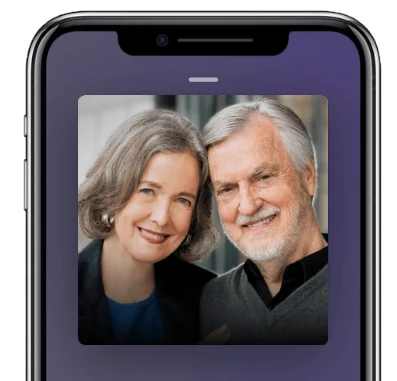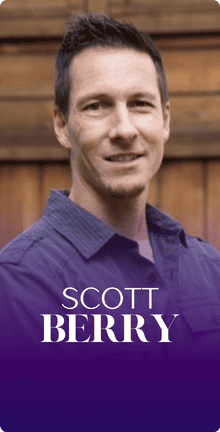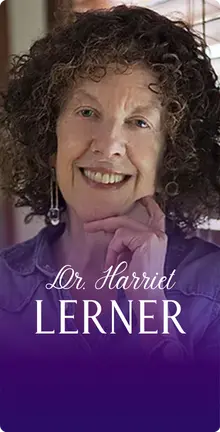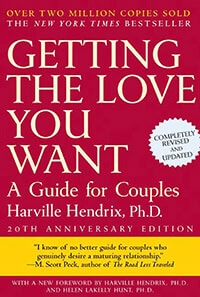
Welcome, Harville welcome Helen.
Thank you, Stephan, we are glad to be here.
Yes, very much so.
Let’s start by just describing what Imago is because in Italian it means image and basically to say that we seek out the extremes of our caregivers from our past, from our childhood, in our significant other is maybe a quick encapsulation of it but I’m sure you guys can do it much better justice. Let’s start with the Imago.
Okay, so Helen shall I do that?
Absolutely.
Okay. You’re right that the word Imago is a Latin word for image and we decided to call it Imago because image didn’t sound like a very sexy term but Imago does. But so what does the image refer to? The image is a constellation of memories that are created in us in infancy in childhood, that is a combination of both emotional memory which you have up to the age of four and then event memory which we could actually remember people and things that happen after the age of four because the hippocampus is in our mind which is the sort of library of experience. There is a constellation of experiences that the brain forms into a coherent image and the content of that image is your interaction with your caretakers. Mom and dad and everyone else who was there in the formative years and the important part of the memory is what they did not do to meet your needs which we call “not doing it”, was wounding and a need didn’t get met that was in the child’s mind as related to survival. It wasn’t optional for the child because it wasn’t optional and because the brain’s primary directive is survival, that need and because the need is rooted in emotional memory which has no connection to time or to events that need stays alive from infancy up into adulthood when we begin to look for our adult intimate partner. When we start that on our search and find mission we are guided by this image to find somebody who is similar to in many insignificant ways our caretakers who have those traits and what will have to be included in those traits in this ideal person that you are looking for are the traits that are similar to the traits in the parents that are connected to need deprivation in childhood.
You’re looking for somebody similar to the parents to get the needs met with that person in adulthood that didn’t get met by your caretakers in childhood. When your eyes look across the room and you see somebody you are attracted to, then like a moth through the flame you go to them and you have this romantic experience of familiarity. So you’re like “I’ve known you, you look so familiar, we fit together so nicely”… say all these romantic wonderful things. What that means is now you’ve had your Imago match meaning somebody in your life in adulthood who matches your caretaker’s traits in childhood, including the traits that will frustrate you in adulthood like the traits in your caretakers that frustrated you in childhood. When you meet that person you say to them that you’re so happy to be with them, you say you love them, they become very significant in your life and soon of your dreams, which is this the person of your dream who will become the person of your nightmares because that person will have the traits or match of the caretaker that frustrated you when you were little will also frustrate you when you are an adult and that’s why it leads to what we call a power struggle. That’s sort of the core Imago thesis, you fall in love with somebody similar to your caretakers and we get frustrated with them similar to the way we were frustrated with our caretakers in childhood.
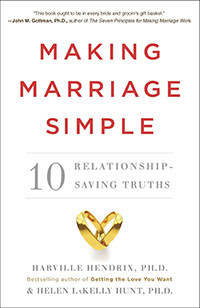
Right. It’s like an opportunity to re-live our previous wounding and finally fix it this time.
That’s the unconscious goal, is to fix it with a person similar to the people with whom you got it. Which means they can’t do it unless a change occurs and that’s why you move into the power struggle. The power struggle is an attempt to get them to change to give you the need satisfaction that you did not get you’re your parents, which means and they would do the same thing with you.
It’s a mutual kind of frustration between two people who are fundamentally incompatible and that incompatibility seems built into nature, it’s called the teacher of the opposite and other literatures. What has to happen is both people have to get those needs clearly defined to each other and then both have to stretch into responding to those needs in a way the caretakers did not respond. Because the needs have to be met before they can be released because for the brain these primitive memories are connected to survival.
Great.
Stephan and if you don’t mind I’d like to add a comment.
Yeah for sure.
When I met Harville it was like about 35 years ago and we were both divorced with two kids and he was putting together this theory and I asked him on our first couple of dates, what is his passion? What does he really want to see his life do? And he said, “Well I’m curious about why do couples fight?” “Why does the marriage of our dreams become a nightmare in so many cases?” and I just thought that was amazing so I kept saying both “Why do you think?” And out came these great pearls and pretty soon after we’ve been dating he really put together more and more of the theory every week and when he developed these three steps at the time he called it, there was a face of illusion where you fall in love but it’s really an illusion, and then there is a power struggle and then there is real love and today we call that the romantic period and then the power struggle and then we have a chance to transform that into the marriage of our dreams.
You know about the theory and how that happens but I thought that it was so fascinating that Harville made it so simple and the thing that is important for us is to dispel the myth that if you are struggling in your marriage you are with the wrong person because people start fighting and then they think oh no I thought this person was so nice, I thought we were compatible and they are actually jerks and I don’t want to be … I don’t know if I want to live with this person forever. They go into this real tailspin but if they are told at the beginning of their marriage that there are three faces of a relationship and you inevitably, they get the romance is going to wear off and your chemicals begin to change and you all are going to have frustrations, but these frustrations are actually an opportunity for a transformation to occur in both of you, you and your partner. Well if you have that information at the beginning you aren’t so upset with your partner when they start being different from you. I love being beside Harville these days realizing we can get information out to people, especially like when they are applying for a marriage license it really should be like a drivers license, there should be a little manual that people read that tells them that the power struggle is coming if they haven’t already experienced it and give them a few suggestions on what not do when that happens and they ought to take a test and pass the test and show some proficiency before they make the most important decision of their life which is get their marriage license and get married.
Right so in a sense opposites attract and we are trying to resolve these unmet needs and resolve or basically heal these traumas through a person who’s by definition flawed because it was their flaws that attracted us to them. Like for example, a parent was an alcoholic, you will either seek out another alcoholic as a romantic partner or a teetotaller one of the two opposites and try and resolve that unconsciously and once this becomes conscious then you get into what you call conscious couple-hood but it requires tools. If you don’t use the tools then how do you go from unconscious to conscious? It’s very difficult. Let’s talk about some of these tools and my favorite is the dialogue process. I’ve got the one-page print out that kind of has the chi for doing that and so my fiancée and I will reference that sheet when we are doing a dialogue and give the appropriate handoff from one place to the other so that we are strict in the application of the dialogue process because that adds safety to the process to be strict about how you implement it. Let’s talk about the dialogue process.
Yeah what I’d like to start and Helen you fill in. I’d like to start it because it’s interesting how things begin that the dialogue aspect began actually as Helen’s initiative. We were early in our relationship, we were from the beginning in our relationship, we had pretty intense conversations and as we got more serious those conversations became more intense as they often do, I think we sort of went into pieces of the power struggle before we got all the way into romantic love. Anyway, new were having one of these intense conversations in the first few months in our relationship and we were in Helen’s living room having this and Helen interrupted our back-and-forths which was sort of intense and negative and said “Why don’t we stop and one of us talk and the other one listen” Because you can imagine both of us are very good talkers.
We refined it together until it became what it is now.
And so we did, that stopped us and we did that exchange. And it so regulated our emotions and helped us through that conversation that there was noticeable so that I took it back then to working with couples, whom I then was in a practice. And to the end, it would work so well with couples to focus intensely on the alternation of conversation, so that people weren’t talking about a problem but talking in a different way with each other and over the next several years, more and more new answers about that began to emerge, that turned it into the structured process that you probably have on the sheet in front of you but that began in the midst of the power struggle with Helen and me so I give her credit for the discovery of dialogue. Then we, of course, refined it together until it became what it is now, with the input from other couples. And so that’s fundamentally it and Helen you want to pick up and say more about what the content is?
Well I just, perhaps that it would be nice if that couple applying for a marriage license would answer a quiz saying that if a problem emerges, what do you do? And the answer is to take turns talking about it because it’s so elementary but Harville I’ll let you go ahead and say more but I think that’s the big thing is talking. But I’ll say one last thing, we are in a culture that valorizes the speaker and you get rewards in grade school if you talk well or write a good paper, you get gold stars and as opposed to somebody who’s not talking very much and you get better jobs and you get better promotions at your jobs if you could speak well. We have a culture of people who have been shaped to talk and no one rewards you if you listen well, so we actually don’t know how to listen often, and the marrying process is a technique that helps people talk. They say talking is active and listening is passive and we disagree, we think talking is active but listening can be very active too. It can be meaning-making for the person speaking if they are around a really good listener and both couples need someone listening to their inner yearnings, so they can make sense of them.

That is so important in fact I have a whole episode of this show dedicated to listening it’s Mark Goulston a friend of mine and an author of a book, Just Listen. It’s great content so for you, listeners, go check out that episode with Mark Goulston and remember listening is even more important than speaking because that’s critical. So if you guys want to dig in a little bit into the process of the dialogue, the mirroring, the validating, and the empathizing that would be great.
Okay, so I’d like to be unwrapped to that conversation being that the requirement, which is not negotiable, for a healthy thriving relationship is emotional and physical safety. And talking is one of the most dangerous things that people do and talking is a place where safety gets destroyed and listening is the most infrequent thing most people do. What we need to do is regulate how talking occurs and to increase the frequency with which listening occurs as well as regulate how one listens. And so the way we’ve done that, is we created a three-step process and within each of those steps there are sub-steps and we call them mirroring, validating, and empathizing. By mirroring we mean that when your partner talks to you or when anybody talks to you, that you need to say something like “Let me see if I got that”. If I got it, you’ve said that you feel you think or you heard or you want, then check it out. Did I get it? and let them correct you because most of us think that when somebody speaks to us that we really got it and the research on that is about 88% of the time you don’t get it. You may get a piece of it but you don’t get it accurately enough because you are distorted with your own receptors and your receptors mean your predisposition to hear things a certain way, in a meaning that you bring out of your story. You say, “so let me see if I got it, did I get it” and they won’t either confirm that you heard them accurately or not. The third sub-step in the first step called the mirroring there is this third phase of it which is we call curiosity. And curiosity is well is there more about that and is there more about that we call the magic question because it is so power full in the contribution to safety. It’s also usually the most surprising because most people don’t expect you to show that kind of interest. Usually, it is “okay I got you I want to respond to that or it’s my turn now, I’d like to talk,” so it’s like are you done yet rather than is there more.
When you say, “Is there more?” You say to the other person that you are interested in what they’re saying and you’re available to hear more about it and you will mirror it back and you will mirror it with accuracy and without criticism.
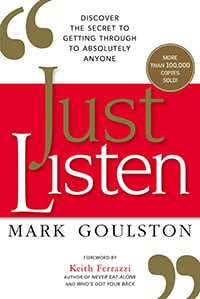
That gives communication enough safety to the speaker. Then, they will then go more deeply into what they are thinking or feeling and in fact will go into expressing things they had not put into words before. We call it pre-symbolic or non-symbolic becomes symbolic, what was then non-existing words move into words and therefore more of that person shows up in the conversation so you keep saying “is there more” until the person says well there’s no more.
Then we encourage people on most occasions to say well especially when it’s been a long transaction to say “well let me see if I got it all” which is the summary. And the summary is well let me see if I got it all, you started with and then you said this and then you said that then so forth could I get it all, and the person says “Yeah that’s a pretty good summary you got it all,” and then there is the listener who got it all says, “Well you know that makes sense,” and what makes sense about it, that’s called validation. What makes sense about it is it makes sense that you would be frustrated with me about dinner last night because I was late and it makes sense that you’re being frustrated because we had an agreement dinner started at [7:00] and I didn’t get there till [7:30], and so your frustration makes sense. I can imagine, then you go to empathy, “I can imagine when I didn’t get there that you were really angry that I was late, is that the right feeling?” A person might say, “No I wasn’t so angry I was really scared something might have happened to you.” “Ooh, so you were not so angry at me, as you were afraid something had happened to me and that was why I was late. Am I getting that now?” “Yeah.” “Well, are there any other feelings about that?” The person might say, “Well let me see well I guess I was a little angry also.” “So you were also a little angry?” Then the person can say, “Well okay I got all that so thank you for sharing all that with me and it means something to me, a great deal to me that you would disclose yourself so fully and now I’d like to respond. Are you available for me to share my reality?” Then the listener becomes the speaker and it goes through the same process in a mutual way. Dialogue, if both people are talking is just one way send therefore only one person talks. So the dialogue is the mutual sharing of realities without judgment and criticism so that people can get to know each other as another, as an other, as somebody not me and that’s the only way we say connecting can occur. It’s you have to differentiate. You differentiate through dialogue, you discover that there are two people talking and they are different, there are different realities. Both realities are okay and that leads to the ultimate wonder that you can be different and connect, and connect without conflict. You’ll always have the tension of the opposites, but conflict is not essential, not necessary, with difference. What is always present with opposites is tension, but tension can lead to creativity or into conflict and we try to help couples move the difference into creativity rather than into conflict.
Very great, got it. Basically we’ve got a three-step process inside the dialogue of mirroring and validating and then empathizing. That person who’s being heard really feels more understood and safe and then the other person who is listening then becomes the speaker. Unless the timing or the mental state or whatever of the other person is such that actually “I’m not ready to hear your response yet, can we schedule a time?” That’s always another safety measure too is, you don’t have to do the dialogue right then and there if the other person doesn’t feel up to it so they’ve got up to like I think it’s 24hrs is that right?
Yeah and I think couples can, we years ago put more guidelines on it than we do now, because one of the things that we’ve learned is that couples can operate in different places. But we do say put a time limit on it; put a time limit that’s reasonable and not avoid it. If you come back in four days that may be a little avoiding but put a time limit on it and you’ll work out the patterns that work for you, so if you do need to wait, yes you can do the second part of the dialogue later.
Couples can operate in different places. But we do say put a time limit on it; put a time limit that’s reasonable and not avoid it. Share on XRight, so this is so powerful because basically what you are doing is you’re taking the opposite of what happens normally, which is I’m half listening and I’m thinking of my counter-attack as I’m half listening so I’m ready to pounce as soon as there is a pause there in the other person’s speech. Then I also am perhaps maybe crazy-making or adding judgment or whatever but basically creating dis-regulation and increasing anger and disconnection instead of removing it and bringing the partner who I’ve chosen to be my significant other I’m bringing her closer with this dialogue process instead of pushing her away by traditional sort of I got to get the last word in and I got to trump with the other person is saying sort of approach.
Yeah, and you know the thing about it that is so paradoxical and weird, Helen and I get more intrigued by how paradoxical human beings are, is that the negative response or the criticism awaiting is really means that I feel one down and we are in a power struggle and I have to get my reality in and be the one who is right or something like that. It’s a kind of over-under thing I have to go back under if I’m listening and I’m hearing stuff I don’t like and I have to reverse that, so that’s the problem. What we discover is that paradoxically, power comes in the listening. That if you really want to produce an effect and regulate the effect of your partner, mirror them accurately without judgment and they will regulate their emotions down because their anxiety will go away that they have to do something in order to experience some sense of power with you. If I get mirrored accurately then I realize I’m not being judged, attacked, or hurt, I’m actually being seen and then I don’t have to try to be seen anymore and we find that when the anxiety goes down, the critic goes down and the connect thing happens so the power resides in the listeners accurate mirroring rather than in their opposition.
Basically, this process provides a tool for you to kind of resolve conflict, reconnect with your significant other, especially when you have this conflict you have this power struggle. This is the way to conscious couplehood. There are other tools though that are also very helpful that you guys teach, such as behavior change request which is kind of a different take on the dialogue process where you’re actually asking for them to change the behavior and then there are also daily appreciations and some other tools. Let’s just briefly describe behavior change request in daily appreciations to our listeners.
Okay, so Helen you want to pick up since I’ve talked so much?
If you make a request, it lands better on your partner than expressing your frustration.
Well, I would just say that behavior change request, it transforms frustration into a wish and everyone is so good at expressing what they’re frustrated by in their relationship. Frustrations occur in the lower brain when you express what’s lacking just in yourself even as you’re saying the words. Anxiety arises because something’s lacking and it reinforces the lower part of your brain but it’s a lot harder for that person to move to the upper brain and talk about a solution. We are really comfortable in that lower brain and the fight or flight or where we notice what’s wrong. We’re sort of wired to first respond in the lower brain, but human evolution as the neo-cortex was eventually evolved, this is the part of the brain that can create a win-win. It’s not my way or the highway, which is the lower brain, it’s, “Hey, how can I get what I want, and you get what you want too.” If you make a request, it lands better on your partner than expressing your frustration.
Right, and when you give them options too of how they can meet those needs that you have not met so far.
Yes, so the long process is sort of summarized by what you’re then adding, that you express a wish and express 3 options of specific ways their partner could respond that would address that wish, then the partner can pick one of the three.
It seems simple. Why don’t more people do it?
Well, good question. Well, I think one reason is that we don’t have very much relational information in the culture. People don’t know this information, they don’t know that every complaint is an embedded wish, is a request, and that people don’t know how to ask for what they want, or they don’t have permission. For some reason, it’s okay to complain but it’s not okay to declare that I would like you to be safe. I would like you to be on time. I would like you to give me three hugs a day. I think the other thing is our brains are, I think Rick Hanson is the person who wrote the book Buddha’s Brain, has made it clear in the research on the brain’s bias towards the negative is an evolutionary status. That for millions of years, we had to be suspicious over people because if we weren’t-long ago in the savannahs and the jungle, we might be somebody’s lunch.
We had to be suspicious and therefore assume the worst. Somehow the brain is biased towards the negative, he uses the term the negative is like, the positives are like Teflon, the negative-what is that other thing that’s sticky?
Velcro.
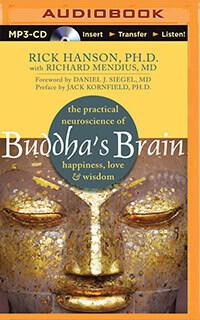
Velcro, negative is like velcro and positive is like Teflon, but that’s not a fault of anybody, that’s the structure of the brain itself. Meaning that when we go to receiving another person, without judging them, and without having to defend ourselves, we’re actually going against an evolutionary as you can see, that’s millions of years old. I think that’s also only lack of information and also we are biased towards the negative. We have to actually grow new neuro-circuits in order to do this and to stabilize it and that’s hard to do.
There’s one other tool I wanted to get to here and I know we need to wrap up this episode here shortly, and that is the daily appreciation, which is really simple and easy to do, if you just get in the habit of it. It basically rewards your partner for being who they are, and all the positive stuff and just recognizes their awesomeness. How does it work briefly?
I will just mention it is so smart to structure time with your partner every evening before you go to bed and share with them 3 appreciations of something they did that day that touched your heart or that you appreciated. Harville and I started doing that about 18 years ago. Every night, we look at each other and share 3 appreciations. It has absolutely transformed the spirit in our relationship, we sleep better. Stephan, that time, right before going to bed, was the time that I would always pull out my list of all the things I thought Harville needed improvement around and for that day. The things he had forgotten to do, the phone wasn’t ringing, the kids weren’t bothering us, I had his undivided attention and I would tell him all the things that had gone wrong. Then I wondered why he wasn’t, he didn’t seem to be enjoying our relationship very much. Just something that simple can be transformational and it’s free. You don’t even have to go to therapy or you don’t have to go do a dance, or you don’t have to go out for something really wonderful to begin to flood into your relationship with more positive energy.

It seems so simple doesn’t it, okay last question here. It relates to the opposites attracting and how we end up with somebody who frustrates us, but it basically is like the two poles of a magnet, they always come together. It’s turtles and hailstorms, how does that work? What are turtles what are hailstorms? I know I’m a turtle and my fiancé Orion is a hailstorm. Turtles and turtles don’t get together, hailstorms and hailstorms don’t get together, could you describe this briefly?
Yeah, the … Shall I do that Helen?
Absolutely.
Okay. We found that when you are in childhood, most of us are with caretakers who are either intrusive or neglectful. We discovered that with our caretakers, we have two ways of getting, sending signals. One is I send a signal, which I escalate the noise, which we call the sympathetic arm of the central nervous system or I kind of go quiet and don’t make any noise, because making noise didn’t work and that’s the parasympathetic side. We take that neurophysiology and translate it into our native language and we call that maximizing or minimizing. Maximize is a person who makes a lot of noise when they want something and the minimizer is the person who kind of shuts down and goes away when they want something. They do that because that worked in childhood. In childhood, the parents would pay attention to you if you really cried, but if you didn’t cry, and you were too quiet, they’d come over to see what was happening and that, of course, would lead to attention. We have made it even more popular in our workshops than minimizing and maximizing by calling the person who maximizes a hailstorm, and the person who minimizes a turtle. The interesting thing is that since we both have a full central nervous system, sympathetic and parasympathetic modes, and we don’t, in childhood, we’re asked to develop one and not the other or we discover one works and the other one doesn’t work, we begin to lose the activation of one side of the nervous system. We marry somebody, or we fall in love with somebody and live with them, have an intimate adult relationship with somebody who if we were sympathetic, like we make a lot of noise and we’ll be attracted to a person who doesn’t make a lot of noise. There’d be traits that both will have that are compensatory to the other person. This seems to be the basis of initial attraction. The hailstorm is attracted to the turtle, the turtle is attracted to the hailstorm in the romantic period. Then when they get together, that becomes a problem. Like the hailstorm says, “Why are you so quiet? You’re never there. You don’t speak up,” and the turtle says, “You’re so noisy, you hail on me all the time and I just can’t get a word in edge-wise,” so what was attractive then becomes in some cases repulsive but certainly conflictual. That seems to be what we call the complementarity of all relationships. The opposites attract, and that means incompatible fall in love with each other and a part of that incompatibility is how they deal with conflict.
Yeah, but the irony is that if you’re not the opposite, if you’re the same as the other person, that doesn’t work, there’s no polarity and there is no long term attraction there. It’s not like, “Well I’ve got to hook up with another turtle since I’m a turtle,” it’s, “Well I’ve got to make this work between the hailstorm I’ve hooked up with and my own turtle, I need to resolve that and make that work because I’m just going to end up with another hailstorm, in the next relationship if I don’t.
Exactly because you need to grow the part of you, you didn’t grow in childhood. The turtles are not attracted to turtles. I’m a turtle, I’m not interested in a person quiet and withdrawn and like me, I’m interested in energy and Helen has energy, so I’m attracted to that. Then sometimes I get scared of her energy, so then I say, “Why don’t you be like me and be a turtle?” That’s not my goal. My goal is to move towards her and mirror her and then her goal is to give me some space. As we move towards each other, or away from each other in a kind of dance that doesn’t trigger each other’s anxiety, then we experience deep connection, and it’s very attractive and romantic.
That’s profound. All right, so we are out of time. I wanted our listeners to know where to go for more info if they wanted to buy your book, Getting the Love You Want, or Making Marriage Simple, the other book. They want to attend an Imago workshop, you have a Safe Conversations workshop coming up in February over the Valentine’s Day weekend. Maybe you could point people in the right direction where they could find these resources or a therapist to work with them who uses Imago as their underlying philosophy.
Yeah, the best place to go for mine and Helen’s long weekend workshops and for referrals to therapists, I don’t do therapy and we don’t actually do therapy anymore, but we do workshops, is to go to HarvilleandHelen.com for our schedule. If you want to come to the Safe Conversations project in Dallas, which is going to happen, it’s big, we expect about 5,000 people at a big workshop in Dallas called Safe Conversation, which is another brand for dialogue, we’ll spend 6 hours that day with 5,000 people helping them learn how to have a safe conversation. This workshop, in fact, is free and we’re inviting people from wherever, whoever hears about it to come into Dallas that day where the hotel rooms are going to be discounted, if people want to go to the big place called Fair Park Coliseum. The way you get to that is to go to safeconveresations.org and there you get all the data about how to register for that, and how to sign up for the hotel if you’re flying in.
That’s great. Wow, it sounds like an amazing workshop, so all you, listeners, have to go to that, as well as pick up the book, Getting the Love You Want, and take an Imago workshop, just really dive in because this is really life-changing. Also if you are interested in downloading the transcript of this episode which I recommend as well, there is a nice checklist that goes with it of some of the key takeaways and actions that you can take from this episode. Go to my website for this show called getyourselfoptimized.com and download that transcript with the checklist. Thank you so much, Harville and Helen, for being on the show and for imparting such great wisdom. Thank you, listeners, for listening and we will catch you on the next episode. I’m Stephan Spencer your host of Get Yourself Optimized.
Thank you.
Important Links
Connect with Harville Hendrix and Helen Lakelly Hunt
Books
Previous Get Yourself Optimized Episodes

